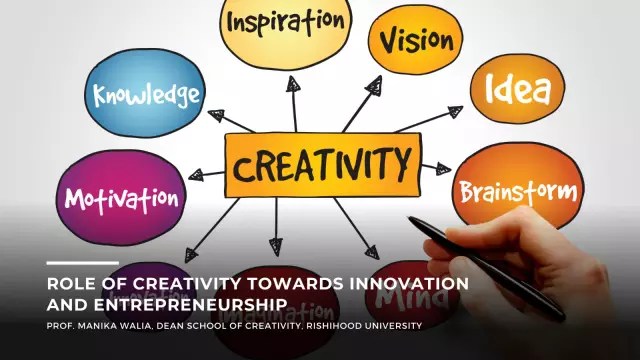- Author Rachel Wainwright wainwright@abchealthonline.com.
- Public 2023-12-15 07:39.
- Last modified 2025-11-02 20:14.
Didactic games for the development of speech
A distinctive feature of children is that they better perceive any information in games, since the game component increases interest in the process, enhances attention and concentration, and multiple repetitions allow even the most absent-minded kids to acquire knowledge. The competitive moment is very important for born leaders. During the game, children's character, peculiarities of imagination and thinking, activity, emotionality, level of social adaptation and a progressive need for contact and communication are manifested.

Didactic games for the development of speech are a special form of education for preschool children, which allows them to enrich, improve, activate and consolidate vocabulary in the process of playing activity - one of the most important means of harmonious formation and education of a child's personality.
Depending on the material used, didactic games for the development of speech are of the following types:
- Games with objects - toys, improvised and natural materials;
- Board games using printed materials;
- Word games.
Development of speech through didactic games
The development of speech through didactic games occurs by replenishing the vocabulary, learning in a playful way the skills of using words (activating vocabulary), improving communication skills.
During the period of preschool preparation, the child needs to master a vocabulary that allows him to communicate without problems with peers and adults, to successfully acquire school knowledge, to understand the material presented (the content of literary works, the formulation of mathematical problems, etc.). Therefore, the main task of preschool education is the maximum development of speech, through didactic games, which occurs more efficiently and better.
Didactic games for the development of speech successfully solve the following tasks in preschool education of children:
- Provide quantitative accumulation of vocabulary necessary for full communication;
- Help in understanding the meanings of words and their correct use with other words;
- They allow you to master the generalizing meanings of words based on the allocation of common characteristic features of objects, actions or phenomena;
- Improve the imagery of thinking and its expression by verbal description, thanks to the use of special speech constructions;
- With the development of cognitive capabilities, didactic games for the development of speech help to expand the objective conceptual content of words;
- Some games with ethical content, along with improving vocabulary, teach the makings of social ethics and morality;
- Stimulates the work of imagination, activating and enriching the preschooler's vocabulary in an entertaining playful way;
- Develop logical and imaginative thinking necessary to solve the set game tasks;
- They contribute not only to the replenishment of vocabulary, but also actively introduce new words into everyday communication.
The vocabulary of a preschooler is significantly inferior in volume to the vocabulary of an adult. The main task of the development of speech through didactic games is to quantitatively enrich the child's vocabulary, activate and teach to use it correctly by increasing the amount of accumulated knowledge about the surrounding world.
Didactic games for the development of the speech of children from two to three years old
At the age of 2-3 years, the baby should master the names of items of clothing, dishes, furniture, toys that surround him in everyday life and arouse his interest. During this period, the names of the actions performed with these objects are also mastered.
The task of educators during this period, with the help of didactic games, is to teach children to name and distinguish:
- Parts of objects, body parts of animals and humans;
- Different dimensional values;
- Primary colors;
- Main taste qualities;
- Some physical qualities and properties.
It is necessary to develop the ability of children to designate in one word a group of similar objects, united by a common feature and to distinguish between similar groups of objects.
It is good at this age to start teaching a child to talk on the phone with an invisible interlocutor. This is a kind of didactic game that develops not only vocabulary, but also abstract thinking, the ability to express one's thoughts without the help of gestures. It is necessary to build such a conversation correctly, asking simple questions that do not require complex answers, you can make a telephone conversation, for example, with a grandmother, a daily ritual.
We also recommend didactic games for the development of speech, the essence of which is clear from the title - "Name it correctly …", "What has changed …", "What does it consist of …", etc.
The main goal of such games at this age, improving vocabulary, is to instill in the child an interest in vocabulary activity.
Development of speech through didactic games at four years old
At the age of four, the child's vocabulary is further replenished, with a more detailed deepening into the details and characteristics of the world around him. This is necessary to enhance differentiated perception and deepen knowledge about the features of objects, their purpose, structure and expanding understanding of the qualities and properties. At this age, the baby must learn the basic techniques of orientation in space and time, master the appropriate words (morning, evening, forward, backward, first, then). Didactic games for the development of speech, recommended for children of 4 years old, should begin with the phrases "What first, what then …", "When it happens …", "What has changed …", "What will happen if …", "What can be done with … "," What can you do … "," More than … Less than … "," One … many … "and the like.
It is good if the child will talk every evening about how he spent the day, what and with whom he played, what he saw and did. Answering leading questions from parents in the process of role-playing games, using favorite toys, the baby will develop faster, replenishing his vocabulary and improving the ability to use it.
Development of speech through didactic games at 5-6 years old
Senior preschool age is the period when children, with the help of didactic games, actively master the spoken language, mastering vocabulary, phonetics, and grammar. The vocabulary expands, based on an in-depth knowledge of the surrounding world. The main task of didactic games for the development of speech at this age, along with further replenishment of the vocabulary, is to teach the child dialogical and monologue speech.

In a playful way, special communicative situations should be created in which the baby must maintain a conversation, starting and leading a dialogue. Playful moments are assumed in which the adult and the child change places and the child asks questions.
During the preschool period, it is important to teach the child narrative speech, the ability to compose and pronounce monologues - for this, in the form of a game, you can offer to describe specific situations, such as a long journey, visiting a zoo, a fairytale journey, with a detailed description of details (objects, properties, qualities, actions and etc.).
Didactic games for the development of speech contribute to the realization of the characteristic age-related possibilities of the harmonious mental development of preschoolers, preparing them in stages for school life.
YouTube video related to the article:
Found a mistake in the text? Select it and press Ctrl + Enter.






